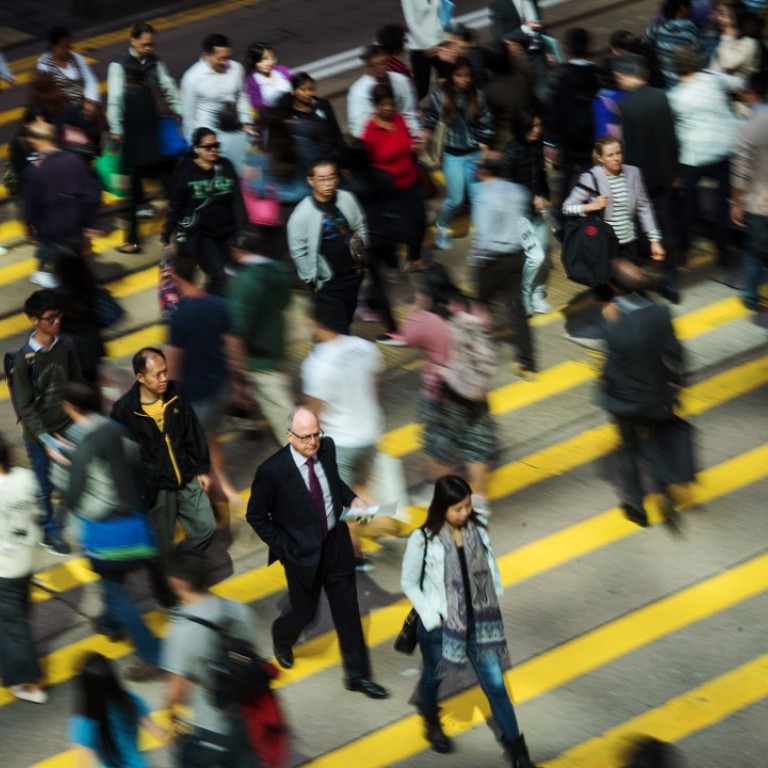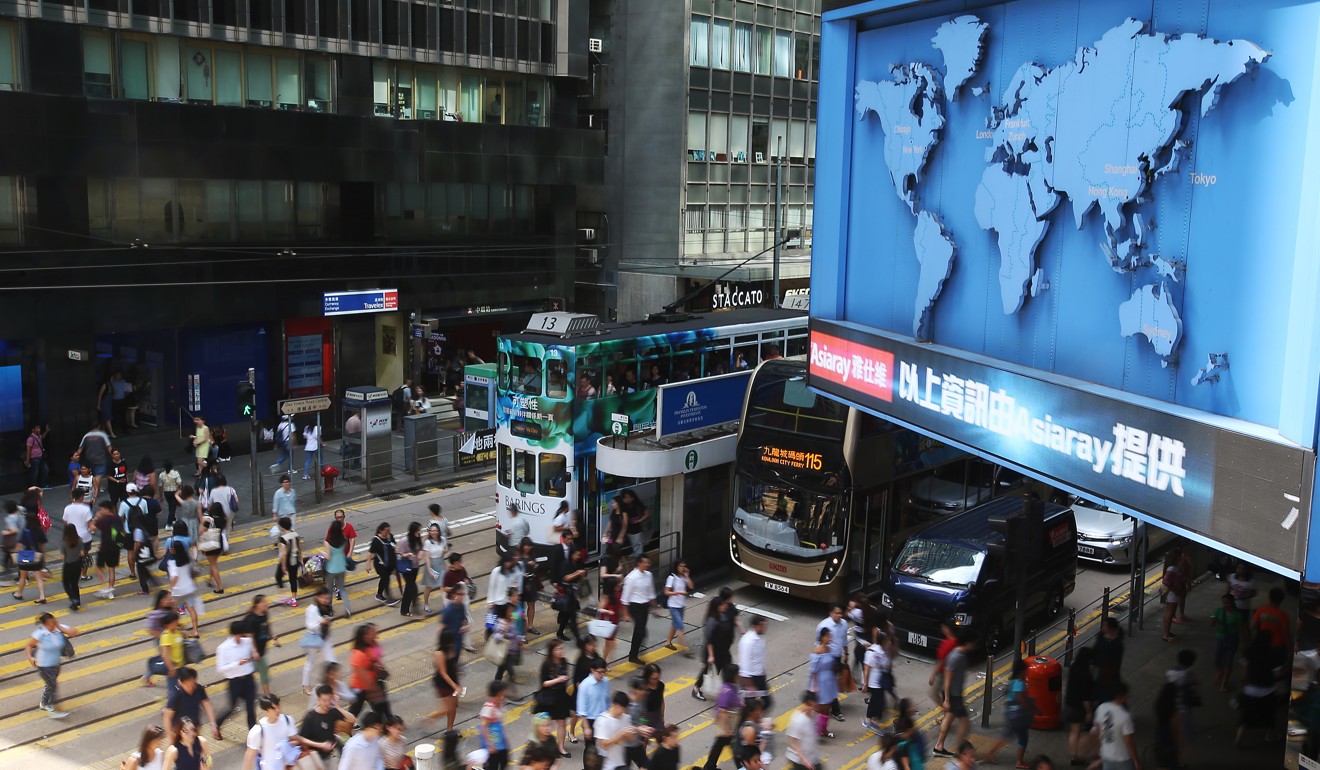
Weaker currency pushes Hong Kong down on cost of living to fourth most expensive in the world
City drops two places in survey carried out by the Economist Intelligence Unit as the Hong Kong dollar dropped to a three-decade low
Hong Kong dropped two places to the fourth most expensive city in the world, due to its weakening currency and low inflation, according to the latest cost of living survey conducted by the Economist Intelligence Unit.
The city’s currency, pegged with the US dollar since 1983, weakened to a three-decade low last week. It was traded at 7.8406 per US dollar, declining around one per cent for the past 52 weeks.
“We expect the down pressure on the currency to continue into the next year,” said Nikita Sisaudia, urban data researcher at the Economist Intelligence Unit. “In the very near future, we may see a further drop for Hong Kong [on the list].”
Hong Kong has a cost-of-living index of 111 this year, down from 114 one year ago, but still pricier than New York, the base city with an index of 100 used by the survey.
Hong Kong homes to become even more expensive in 2018, deepening the affordability crisis, analysts say
While housing prices and rents continue to rise in Hong Kong, low inflation has kept general groceries relatively cheaper than other cities in the top 10. The price of a 1kg loaf of bread in Hong Kong dropped 10 per cent to US$4.16 this year, lower than Paris and Zurich, which are ahead of Hong Kong on the list.
The composite consumer price index (CPI) in Hong Kong, a gauge to measure inflation for all families in the city, only increased 1.7 per cent in 2017, compared with one year before.
“The Worldwide Cost of Living survey does have an international focus in terms of comparing cities around the world. In that respect, the impact for permanent residents is slightly different.” Sisaudia said. “And it’s unlikely that Hong Kong’s residents see significant swings in local prices every year.”
“For some people wages have risen more quickly than prices so Hong Kong is more affordable, but for others it will certainly feel less affordable if their wages have not moved up in line with prices,” she added.

Nicholas Chan, a Canadian expat who has lived in Hong Kong for the past three years, said “although housing is a large part of my expenses, other costs such as transport, food and even vacations are relatively cheap”.
Singapore, with an index of 116, topped the list for a fifth consecutive year.
“Singapore has the highest transport cost in the world,” Sisaudia said. “Singapore’s complex certificate of entitlement system has made it extremely expensive to buy and drive a car.”
Asia now hosts three out of the 10 most expensive cities in the world, down from five one year ago, as Japan’s Tokyo and Osaka were pushed out of the top by the country’s low inflation. A recovery in the strength of European currencies has led to rising costs in Paris, Zurich and Oslo, which all moved forward among the top 10.
Hong Kong is the 9th most expensive city in the world for expats, ahead of Singapore at 21st: survey
The euro and Swiss franc gained 17 per cent and seven per cent against the US dollar in the past 52 weeks respectively.
No American city ranked among the top 10 most expensive cities, with New York and Los Angeles in 13th and 14th place respectively – down from ninth and 11th last year – as the US dollar weakening against other currencies.
The biannual survey compares the prices of 160 goods and services in 133 cities across the globe. It is widely used by human resources managers to calculate compensation packages for overseas positions.

